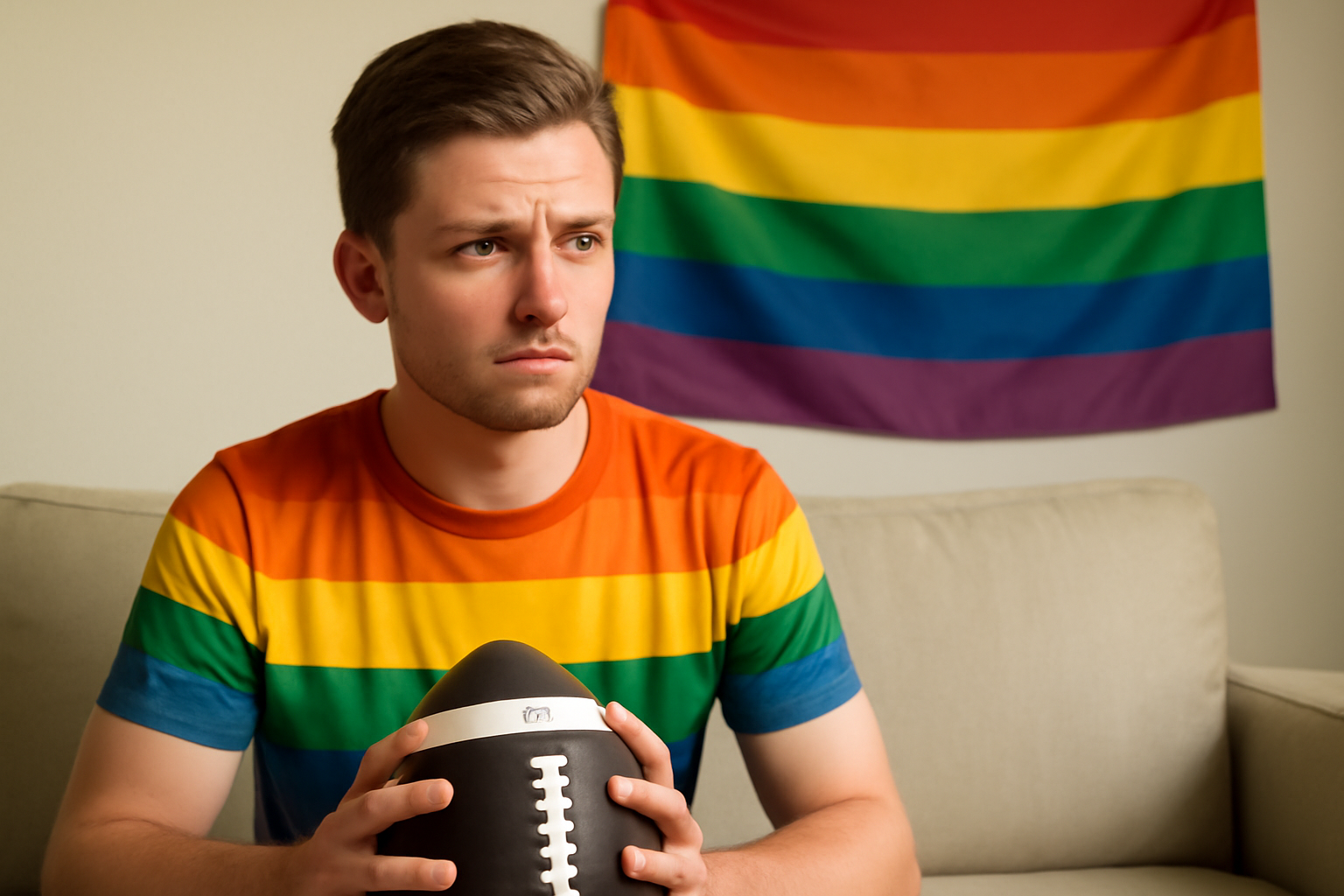
This year’s Super Bowl ads noticeably lacked LGBTQ+ inclusion, highlighting a persistent issue of underrepresentation during one of America’s most-watched events. In total, only four out LGBTQ+ celebrities were featured in commercials, as identified in a recent analysis: Dan Levy appeared in an ad for Homes.com, Michelle Rodriguez represented Häagen-Dazs, Jake Shane was featured in a Poppi soda commercial, and Wanda Sykes appeared in a Novartis pharmaceutical company ad.
Compared to last year’s ads, which saw six out LGBTQ+ celebrities according to some reports and up to ten queer characters or celebrities as noted by GLAAD, this year’s figures highlight a concerning trend. Even those numbers were not substantial, considering the multitude of companies advertising during the highly anticipated event.
The Need for LGBTQ+ Representation
Ad Age’s findings suggest that advertisers generally are "dialing back efforts around diversity and inclusion," a move some attribute to increasing right-wing backlash against DEI (Diversity, Equity, and Inclusion) initiatives. Of the 58 brands approached for a survey on ad diversity, only 14 responded, a significant drop from 23 out of 51 the previous year.
This reduction in representation has not gone unnoticed. Kindra Meyer, executive creative director of the Verb agency, commented on the lack of diversity, "Outside of a few casting choices, I have not seen much representation of my LGBTQIA+ fam thus far. Where is the gender-inclusive diversity? Where are the gay people of color? Where are the different body shapes, sizes, and ages?"
Carlton Jared Lockett, who leads strategy at multicultural media company My Code, emphasized the importance of representation at a time when LGBTQ+ rights face increasing attacks. "The Super Bowl isn’t just a football game, it’s a cultural phenomenon," Lockett stated. "With over 100 million viewers, it’s a moment to look and change the world. This year, as attacks on LGBTQIA+ rights continue to rise across the country, representation is not just a way of inclusion, it’s a way of resistance."
The Impact of Visibility
Lockett further explained, "For LGBTQIA+ people, seeing oneself on this stage is a confirmation. For supporters, it is understanding. And for the brands, it is both the right thing to do and the right thing to do for business. The LGBTQIA+ consumers are a big and loyal consumer market, and still, agencies and brands are afraid to suggest inclusive ideas, fearing backlash or turning off conservative buyers."
Inclusion through small but meaningful acts can deliver powerful messages. "At times, the strongest messages are delivered through small acts of incorporating diverse people into the world we all inhabit. Inclusion can be as natural and as unobtrusive and still feel quite meaningful," Lockett said.
There is also the issue of intersectionality. Last year, GLAAD noted that Super Bowl ads predominantly featured white queer individuals, with little to no representation of trans and nonbinary people. This year, Ad Age reported that the overarching theme of Super Bowl ads, regardless of their queer content, skewed heavily towards featuring white and male individuals.
Looking Ahead
As the debate over DEI efforts and representation continues, it becomes increasingly crucial for advertising to reflect the diverse world we live in. The Super Bowl, being a cultural touchstone viewed by millions, offers a golden opportunity for brands to make bold statements about inclusivity and acceptance. However, it appears that many companies are hesitant to take that step forward.
To keep up with the latest developments and discussions surrounding LGBTQ+ representation in media and advertising, consider subscribing to our newsletter. Stay informed and engaged with the latest insights and stories impacting LGBTQ+ communities worldwide.
Related Posts
Triumphant Trans Woman Wins Legal Battle and Inspires Others to Stand Up for Their Rights
Breaking new ground: a landmark victory in transgender rights After battling in courtrooms and enduring endless challenges, Diana Portillo, a transgender woman, has secured a monumental victory in her decade-long fight against workplace discrimination. The result? Nearly $1 million awarded in a historic settlement. But this isn't just a win on paper—it represents a powerful precedent in combati [...]
Pride Month in Latin America: Protests and Demands for Equality
**Celebrating Pride and advocating LGBTQ+ rights in Latin America** Pride Month in Latin America was a lively mix where celebration met activism. Communities united, not just throwing a party but making a stand—demanding equality and pushing governments toward better protection and rights recognition. Throughout Latin America, pride events erupted in marches and cultural displays, each with a c [...]
Transgender Erasure Actions Implemented by National Park Service
```html Trump administration's impact on national park service and transgender recognition The Trump administration made notable moves in undermining transgender representation, which included directing agencies like National Park Service not include "T" and "Q" when they refered “LGBTQ” in any official communication. This move seems part a broader plan by this administration aimed at reducin [...]